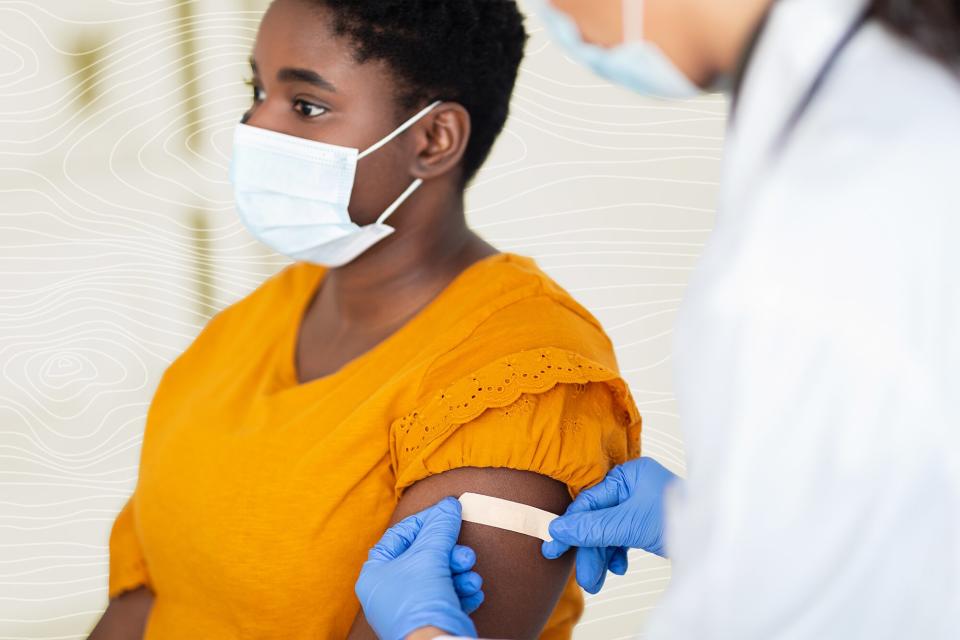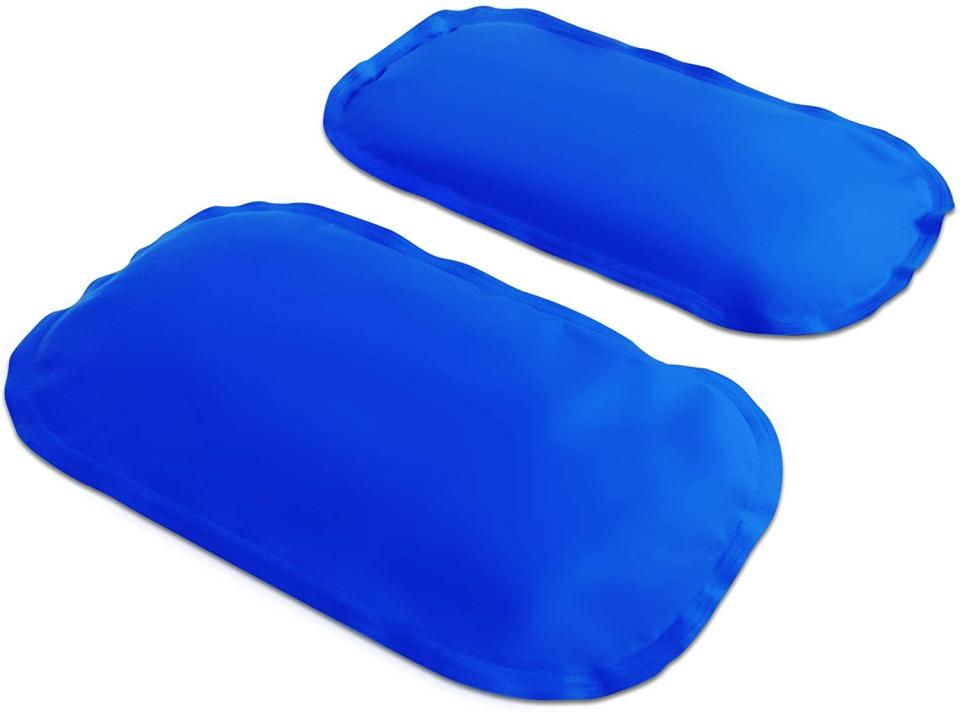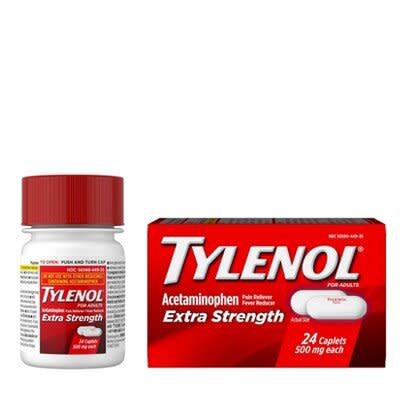5 Things You Can Do to Minimize COVID-19 Vaccine Side Effects, According to Doctors
Worried about post-shot side effects? They're pretty much always no sweat—and are often completely non-existent or almost unnoticeable, reports the U.S. Centers for Disease Control and Prevention (CDC). (Psst...that doesn't mean your antibodies aren't building or the shot isn't "working" at activating your immune defenses. Just as with eating patterns and certain foods, we all respond a bit differently, and that's okay!)
If symptoms do present themselves, they most often won't interfere much with your day. Arm pain, minor swelling or redness near the injection site, tiredness, low-grade fever, headache, chills and nausea are the most common side effects, per the CDC, and these generally fade away within 24 to 48 hours after you receive your shot.
Related: 7 COVID-19 Vaccine Myths You Definitely Shouldn't Believe, According to Infectious Disease Doctors
With that said, if you are among the population who experiences symptoms after your first dose of a vaccine that requires two doses (Moderna or Pfizer), "it is important not to let that dissuade you from receiving the second dose—unless there are any concerns about a potential allergic reaction," says Prathit Kulkarni, M.D., an assistant professor of infectious diseases at Baylor College of Medicine in Houston, Texas. (The U.S. Department of Health & Human Services explains that these extremely rare allergy-related responses could involve a full-body rash, difficulty breathing, dizziness, fast heartbeat or a swollen face. This is why those who receive the shot are asked to wait 15 minutes for monitoring, to see if any of these arise.) "In that case, these should be discussed with a healthcare provider prior to receiving the second dose," he says.
Getting vaccinated helps protect yourself and others from COVID-19. Here are five things you can do before and after your first and second dose to ease any of the potential aches and pains.

Getty Images / Prostock-Studio
5 Things You Can Do to Minimize Vaccine Side Effects, According to Doctors
Take It Easy (If Your Schedule Allows)
"Get plenty of rest and good sleep the night before the vaccine," says Dr. Nicholas Pantaleo, M.D., an internist and family medicine practitioner at Westmed Medical Group in Westchester, New York. In case you need a boost, here are four pro tips to get a better night's sleep, and a simple temp shift in your home can be a huge help as part of your overall rest Rx! If your work or family schedule allows you to chill out or sign off for one or two days after your shot, "especially the second dose, which tends to be associated with more side effects," Kulkarni says, that certainly can't hurt. Translation: You have full permission to cash in some of those vacation days!
Related: 25 Meals to Prep Before You Get Your COVID-19 Vaccine
Hydrate
It's really quite simple, Kulkarni says. "In general, getting plenty of rest and staying well-hydrated one to two days after the vaccine can be helpful" Aim to drink an extra 16 to 32 ounces or so leading up to the shot, "and stay well-hydrated post-vaccination for at least 2 days," adds Pantaleo. To keep things simple, consider buying an extra large reusable water bottle to keep on hand after your vaccine.
Buy it: Gallon Water Bottle Jug; $12.99 on Amazon

Amazon
Put That Arm on Ice
If your arm is sore or swelling a bit, "apply a cold compress or ice pack," Pantaleo suggests, or even a bag of frozen peas, to the injection site. This can help ease any possible swelling or aches. We like this one from Amazon because it's flexible and reusable. It also comes in a pack of two, so you can take turns freezing them for constant comfort.
Buy it: Gel Cold Compress; $19.95 on Amazon

Amazon
Stay Mobile
If your energy levels and time allows, sneak in a workout that uses your upper body in a light way. "Move the injected arm at the shoulder frequently to prevent further soreness or pain," Pantaleo says. (This is often recommended by medical experts after a flu shot as well to help your arm aches ease off quicker.)
Keep the Pain Meds Handy
As we mentioned in our list of 8 things you should bring when you get your COVID-19 vaccine, "There's typically not a reason to routinely take pain or fever medications before receiving the vaccine, but afterwards, typical over-the-counter pain and fever-reducing medications can be used to help alleviate post-vaccination side effects," Kulkarni says. Unless your doctor has told you in the past that you should avoid things like Tylenol or Ibuprofen as a general rule, these over-the-counter meds should be fine to take according to label instructions, according to Pantaleo.
Buy it: 100 Count Extra-Strength Tylenol; $10.47 on Amazon

Amazon
After your second dose, you'll be resting easier and just days away from these fantastic activities that are now A-OK. So might we recommend step six: Chill the bubbly to raise a glass to good health and science?

